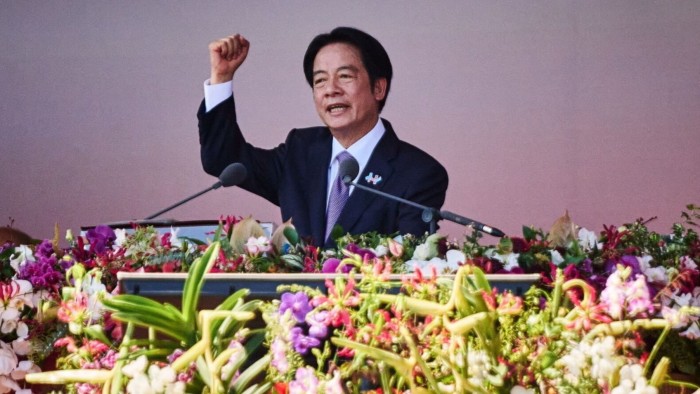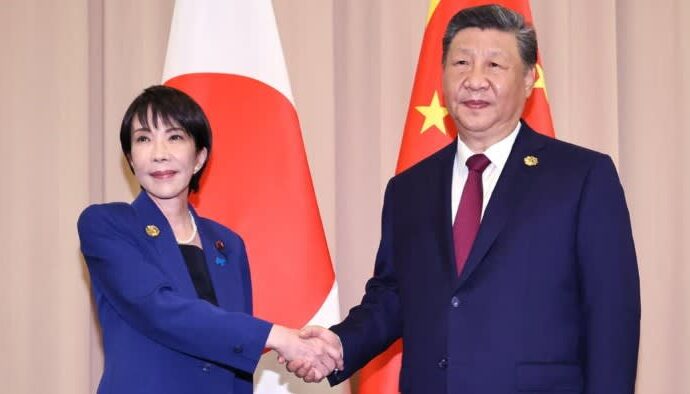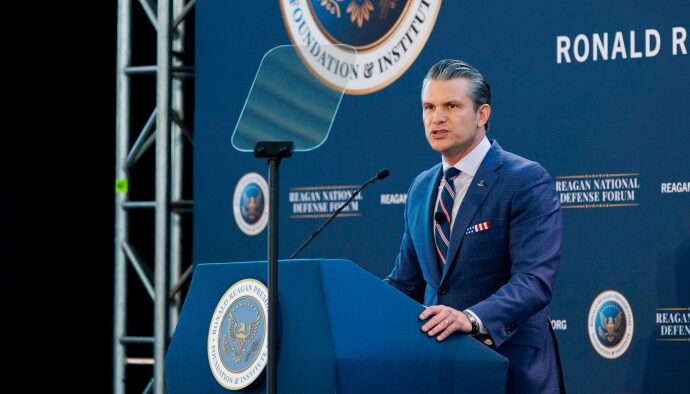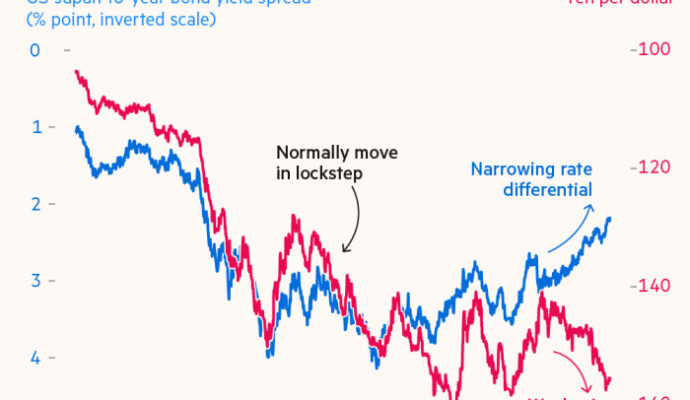
Unlock the White House Watch newsletter for free
Your guide to what Trump’s second term means for Washington, business and the world
Taiwan’s president has said the country is accelerating plans for a multi-layered “T-dome” missile defence system as a protection against growing threats from China.
Speaking at a National Day address in Taipei, Lai Ching-te pledged a “safety net” that would include high-altitude detection and interception of incoming missiles.
Lai also reiterated the intention to raise defence spending, describing it as “a clear necessity to counter enemy threats and a driving force for developing our defence industries”.
The missile defence plan will strengthen Taiwan’s defensive capabilities amid pressure from China. US military experts believe China’s leader Xi Jinping has told the Chinese military to develop the capability to attack Taiwan by 2027.
China claims Taiwan as part of its territory and has threatened to annex it with military force if Taipei indefinitely resists its control.
A missile defence system would probably be used to protect against strikes in the case of either a Chinese invasion or targeted strikes calibrated to force Taiwan to negotiate without triggering a military response from the US.
Lai did not give further details about the new T-dome system, a name that appeared to be a reference to Israel’s Iron Dome. Last month, Taiwan unveiled a new air defence missile for intercepting mid-level ballistic missile attacks and reaching higher airspace than the US-made Patriot missiles already in its arsenal.
Lai called on China to be a “responsible great power”, including relinquishing the threat to use force to change the status quo.
Referencing the shared horrors of the Second World War, Lai said that a repeat of such suffering must be avoided.
But he emphasised Taiwan’s will to “preserve peace through strength”, reiterating a pledge for defence spending to rise to 5 per cent of GDP by 2030. Next year’s defence budget will amount to 3.3 per cent of GDP, according to government plans presented in August.
Previous speeches from Lai have been met with shows of force from Beijing, which has branded him a “separatist”.
In March, after Lai labelled China a “foreign hostile force”, China launched large-scale military exercises around the main island of Taiwan.
A report released on Thursday by Taiwan’s defence ministry described the “comprehensive threat” from Beijing’s use of cyber attacks, joint combat readiness patrols, targeted military exercises, and cognitive warfare.
A foreign diplomat in Taipei said Lai’s speech was clearly signalling Taiwan’s increased defence spending to US President Donald Trump’s administration, which has pressured governments across the region to do more on defence.
The diplomat said Lai had avoided rocking the boat on issues related to China, which was likely to be a relief to both Washington and Beijing ahead of an expected meeting between Xi and Trump this month.


